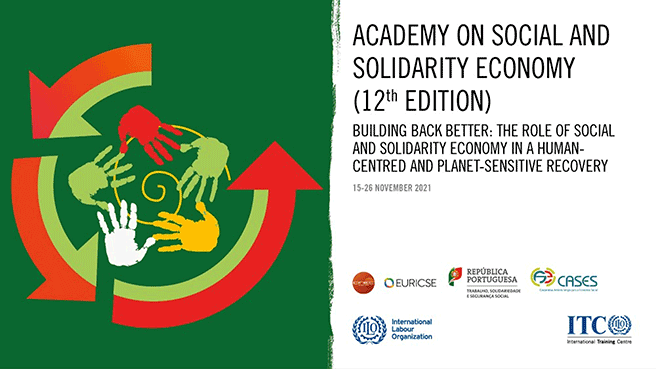Academy on Social and Solidarity Economy (12th edition)
-
November 15, 2021 - December 26, 2021
- Online

The Academy targets ILO’s tripartite constituents, policymakers involved in SSE, practitioners from development partner agencies and international organizations, SSE entrepreneurs and practitioners, and members from academia and researchers.
In March 2021, the 341st Governing Body of the ILO decided to place on the agenda of the 110th Session (2022) of the International Labour Conference (ILC) an item related to Social and Solidarity Economy (SSE) for general discussion. This is a historic decision and it presents a unique opportunity, among others, to provide a universal definition of the term “social and solidarity economy”, including its associated principles, and to provide policy guidelines for the Member States wishing to establish a conducive environment for national development of SSE.
In this context, the 12th edition of the ILO SSE Academy provides a global space for policymakers and practitioners to exchange and learn from innovative SSE policies and practices all over the world. WIEGO participated as a panelist in two elective courses sharing experiences and reflections about Social and Solidarity Economy, Inclusion and Gender Transformative approach, and Circular economy –innovative ways of production and consumption.